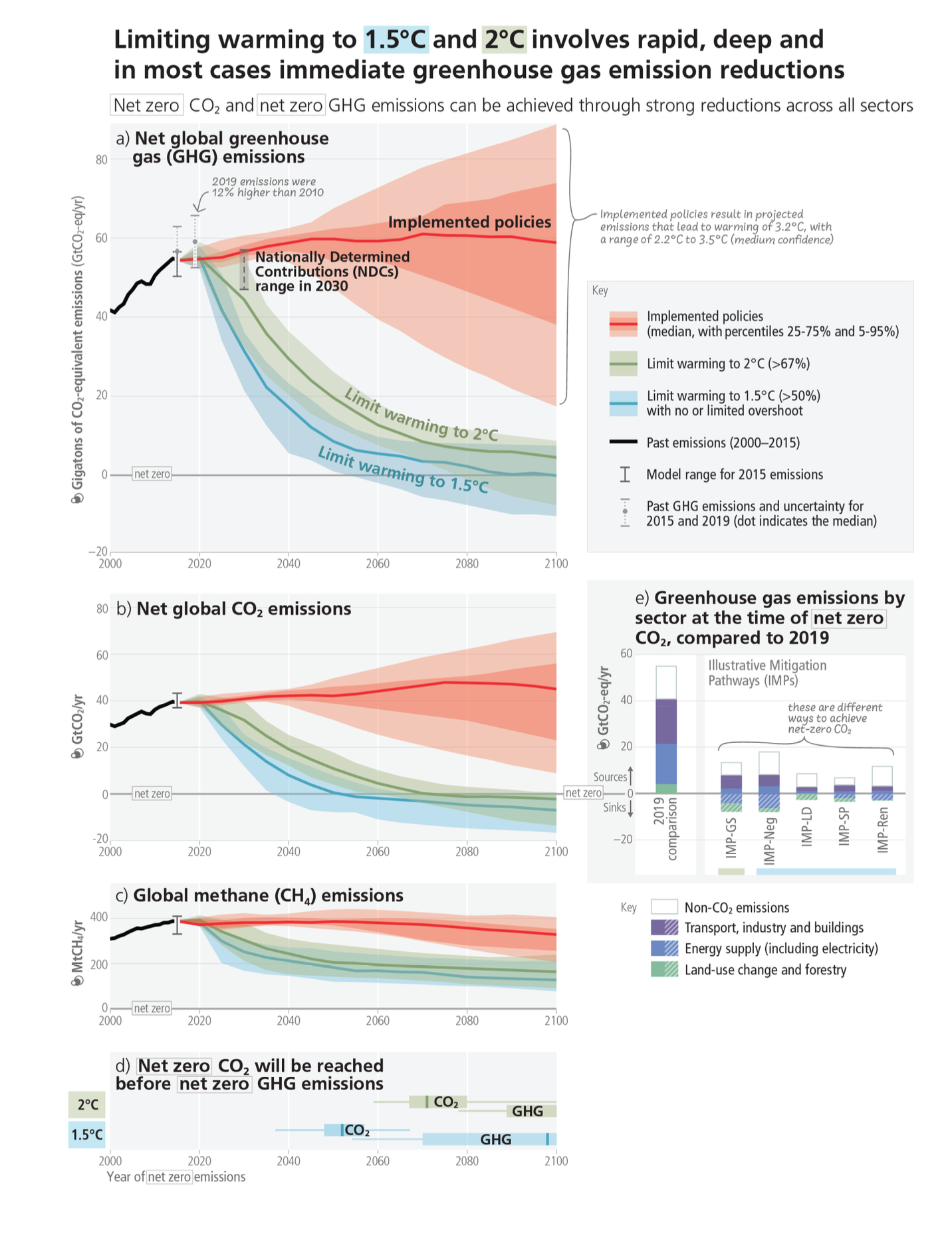20 de marzo de 2023
Window narrowing on global warming goal, warns IPCC
The human race needs to act this decade to limit global warming to 1.5 degrees according to synthesis report
The fourth and final instalment of the IPCC’s sixth assessment cycle of the state of the climate has been released today [20 March] and delivers a final warning that the human race needs to act this decade if it is to limit global warming to 1.5 degrees.
The short format report provides no new science. Instead, it condenses the main findings of the sixth assessment report (AR6) – and special reports published since 2018 – to support decision making and urgent action at global and national levels.
It warns that “climate change is a real threat to human and planetary health” and that we are currently falling far short of limiting warming to 1.5 or even 2°C, the goal of the Paris Agreement. To limit global warming to 2°C above pre-industrial levels this century will require immediate and deep emissions reductions, this decade, in all sectors. Existing and planned fossil fuel infrastructure on its own will exhaust the remaining carbon budget for 1.5°C.
It is unequivocal that human activities have warmed the planet by 1.1°C above pre-industrial levels. This has resulted in weather and climate extremes in every region of the world, causing widespread losses and damages to nature and people.
To avoid the worst consequences, the global community is called upon to cut emissions by almost half by 2030, if warming is to be limited to 1.5°C – and to escalate adaptation efforts.

AR6 is the most comprehensive climate assessment to date and draws on findings from satellite Earth observation more than previous IPCC reports to characterise changes across the physical climate system – from accumulating greenhouse gases to increasing surface temperatures, melting sea-ice, glaciers, and ice sheets and an acceleration in sea-level rise.
ESA’s Climate Change Initiative (CCI) – an R&D programme involving Europe’s leading climate and earth observation scientists – contributes several long-term satellite observation datasets that act as key lines of physical evidence in the latest state-of the art assessment.
For example, Arctic sea ice extent is in long-term decline – a trend tracked from space, with records since 1972. Model simulations predict that the Arctic ocean will be ‘practically ice free’ by the summer by 2050, with consequences for the region’s climate.
Similarly, satellite surveys show the world’s glaciers are in a near synchronous retreat. Between 2009-2019, annual ice mass losses averaged around 270 gigatonnes (Gt). Worryingly, the pace of glacial ice loss has accelerated since the 1990s and is ‘very likely’ driven by human influence. The synthesis report highlights glacier melt as a hard adaptation limit for populations dependent on them for freshwater.
Observed ice loss is also accelerating across the Greenland and Antarctic ice sheets. Along with glaciers they are a dominant contributor to average global sea level rise, which is also exhibiting an acceleration, increasing to 3.7 mm yr-1 between 2006 and 2018.
The contribution of ESA’s climate data records in providing supporting evidence to assess the climate has increased threefold in the number of papers contributing to AR6 compared to AR5, with 150 papers generated by the CCI cited over 400 times. Over 30 researchers working on this ESA initiative also contributed directly to the report as lead (7) or contributing (14) authors or expert reviewers (10).
According to the synthesis report, the options for climate resilient development are narrowing, with the current decade a crucial window of opportunity to limit the worst of the damages and direct harms of overshooting 1.5°C. The authors point to multiple, feasible and effective options to reduce greenhouse gas emissions and adapt to human-caused climate change that are available now.
Satellite technology and research are rapidly advancing and evolving to support the UNFCCC Paris Agreement.
“With the global vantage point, satellites provide a whole Earth view from which to monitor and climate action on both sides of the mitigation and adaptation coin,” says Susanne Mecklenburg, Head of the ESA’s climate Office.
“The Copernicus Carbon Dioxide Monitoring mission (CO2M), due to launch in 2025, will enable measurement of methane and carbon dioxide emissions resulting from human activity, providing an independent source of information to track the effectiveness of policy measures.
She adds that, CCI scientists have used existing satellite missions to compare national greenhouse gas inventories against space-based observations.
‘If applied regularly, these systematic observations have a significant potential to support transparent carbon accounting process with which to assess progress against national – and collective - emission reduction commitments,’ adds Dr Mecklenburg.
Using these space-derived climate data also have potential to tackle adaptation, however, progress is hampered by the absence of a clearly defined goal, target or reporting guidelines and common indicators. To move Earth observations role in monitoring adaptation forward, consideration also requires location-specific economic, social and environmental conditions information. The challenge here is to develop systems to observe globally and act locally, adds Dr Mecklenburg.
ESA’s new Climate Change Initiative which begins its rollout later this year will further advance scientific understanding of the climate system firstly by expanding development of long-term satellite data records of Essential Climate Variable and using them in combination. As well as strengthening the role of satellite observations in climate modelling and support to operational climate services, the R&D focus in the coming years will help study climate drivers, interactions and feedbacks, as well as reservoirs, tipping points and fluxes of energy, water, and carbon to support Member States’ progress towards their Paris Agreement commitments.

